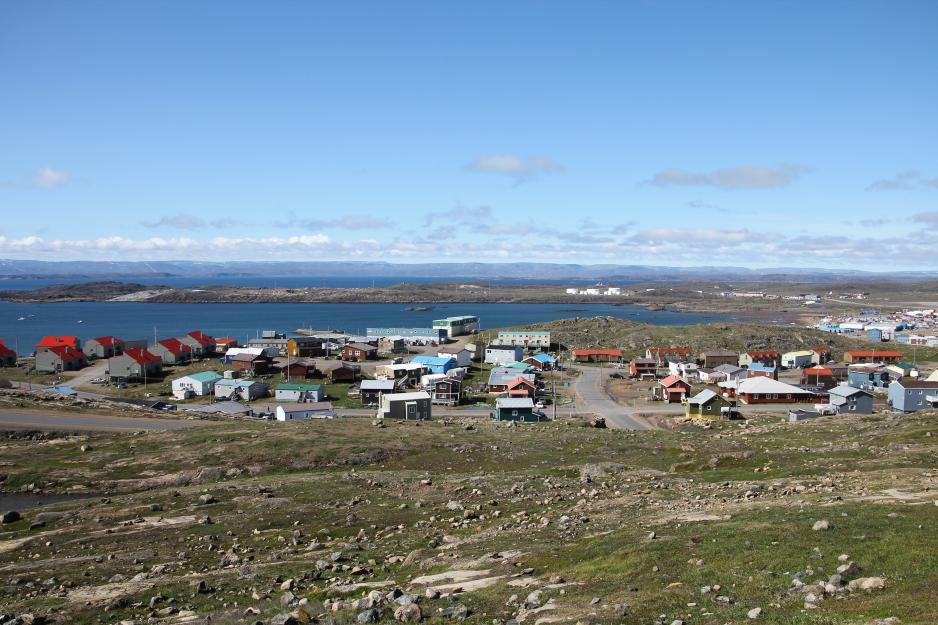Can The Arctic Be Sheltered?

BLOG: As the Arctic Council convenes in Iqaluit, Canada, for its April 24-25 ministerial meeting, one question stands out: To what effect has Arctic cooperation been influenced by the political realities outside of the Arctic region?
This is an opinion piece written by external contributors. All views expressed are the writer's own.
On Friday the 25th of April the USA will assume Chairmanship of the Arctic Council. In the days prior to the meeting, future leaders of the High North are attending a workshop in Ottawa to discuss the future of the North. High North News will be present in Ottawa. Today we launch our blog, in which we present the thoughts and opinions of the Norwegian delegates. First in line is Andreas Østhagen, 28, from Bodø. Østhaugen is employed by the Norwegian Institute for Defence Studies. He is also associated with the High North Centre for Business and Governance and the Arctic Institute.
As the Arctic Council convenes in Iqaluit, Canada, for its April 24-25 ministerial meeting, one question stands out:
To what effect has Arctic cooperation been influenced by the political realities outside of the Arctic region?
As stated in January 2015 by Canadian Foreign Affairs spokesperson Francois Lasalle: “For the time being, the multilateral work of the Arctic Council continues”. It is no small feat that Canada – during its chairmanship – has managed to shelter work done together with Russia under the umbrella of the Arctic Council.
At large, however, Canada has been particularly vocal against Russia, cancelling joint events and obstructing Russian access to meetings held in Canada. As Nunatsiaq recently argued, the tension between Canada and Russia now has the potential to derail the Arctic Council work on oil spill response, to be announced at the Iqaluit ministerial.
It was also recently confirmed that Russia’s foreign minister Sergey Lavrov will not participate in the meeting, in contrast to the ministerial meetings in 2011 (Nuuk) and 2013 (Kiruna).
Canada itself will send both the foreign minister, Rob Nicholson, and Leona Aglukkaq, minister for the Arctic Council.
The deteriorating relationship between Russia and the West pose problems for the Arctic states. Approximately half of the coastline around the Arctic Ocean is Russian territory, making Russia an essential – if not the most essential – Arctic state in Arctic Council deliberations. Moving forward on discussions concerning regional oil spill preparedness and prevention, or regulating Arctic shipping, requires participation of the state where most of such activity is likely to take place.
Bilaterally, Russia is an indispensable partner for Norway given the extensive maritime border in the Barents Sea.
On the other side of the Arctic, Russia and the United States share a long border in the Bering Sea/Strait area. In these maritime border regions, cooperation is required to efficiently manage shared fish stocks, enforce border control and provide emergency assistance.
Questions concerning the EU’s observer status also hinges on Russia’s assent. The Arctic Council is a consensus-based organization, where each member has a veto. The EU’s bid for observer status was placed on hold in 2013, awaiting settlement of its seal ban dispute with Canada, which was resolved in late 2014.
Will Russia subsequently allow the EU to its symbolic observer status, in spite of the multiple rounds of sanctions imposed on Russia by the EU and the US?
The EU and US led sanctions have specifically targeted technology related to the petroleum industry, predominantly relevant for Russian Arctic offshore development.
Russia has gone out of its way to signal a desire to shelter Arctic affairs from tensions elsewhere. The Arctic Council ministerial meeting will be the first real test to this determination.
Journalists and politicians alike have posed the same question: is the Arctic the next arena for conflict between ‘the West’ and Russia? A simple answer does not capture the variety of complex dynamics in the Arctic region, or even in the Arctic Council itself. The outcome of the Arctic Council ministerial in Iqaluit is therefore worth watching closely.

